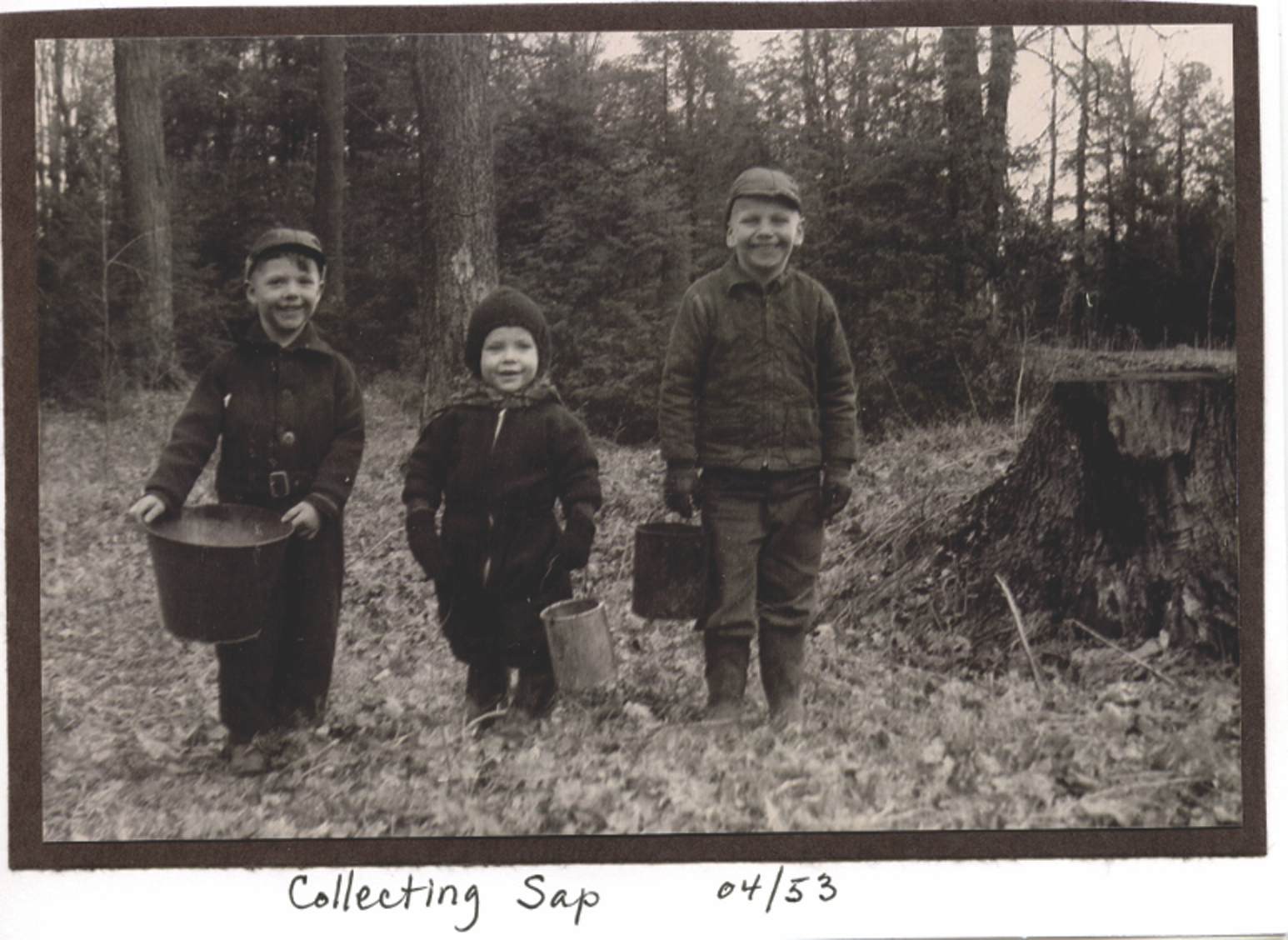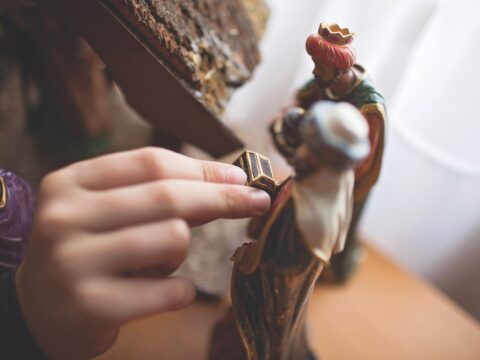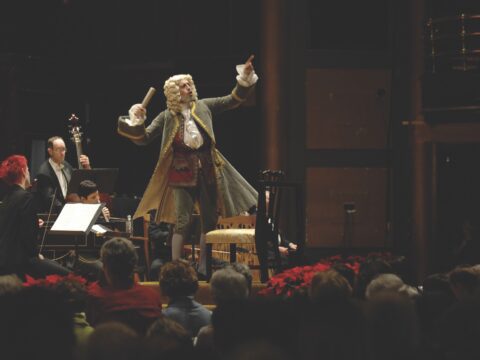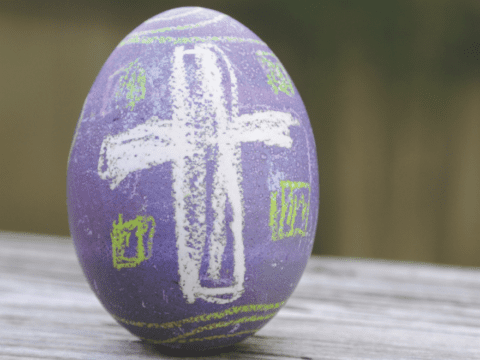In my childhood, Jesus and God and faith were everywhere. “God,” my Sunday school teacher told us, “sees the little sparrows fall.” “God Almighty,” my uncle snorted through clenched teeth when the rusted bolt on his cultivator shovel wouldn’t budge no matter how hard he torqued on it with his wrench. “Guter Gott . . . ,” our visiting grandfather would begin his after-breakfast prayers, before meandering on endlessly in singsong German none of us understood.
“Jesus knows every hair of your head,” my friend Pud offered confidently.
“No,” I shot back, “that’s God.”
Pud and I were having a theological disagreement. Being a Lutheran possibly explained why he thought he knew what he knew, but I knew different, and was sure of it.
Up until then, all the churches had seemed pretty much the same — the Presbyterians, the United, the Lutherans — but apparently that was not the case. The really different ones would be the Catholics, but you’d have had to go quite a distance through our countryside to find even a single Catholic person, so we felt pretty safe.
On Sunday, everybody — Presbyterian or Lutheran or United — went to church. And at that moment, the whole world changed. Our farmer fathers dressed up like bankers. Women put on hats. Everywhere were different smells: whiffs of lavender from the cheeks of ladies, the dust of dry paper from hymnbooks, the bracing scent of wax polish from wooden pews.
Church, not just the red-brick building with its coloured windows, but the very experience, the so-called intangibles, was the hub of the wheel. It was where almost everything took place that gave meaning or form and made us what we were.
The inescapable problem with church, however, was that it was boring. Please, voices inside cried out, let something happen. Blessedly, such prayers were heard.
Church had one redeeming factor: things could go wrong. The bigger the event, the more urgent the possibility of mishap or even disaster. Something going wrong during a wedding, for example, could render us ecstatic. During holy communion, some elderly person choking on their grape juice was almost as good. When it happened to Mr. Wolfe, his wife had to wallop him hard on the back, a scene my brother and I then re-enacted for weeks.
But nothing was so primed for accidents as Christmas, and something that took place on the evening of the last Sunday before it called “The Program.”
Christmas arrived at church with the gigantic spruce tree delivered by Mr. Bender, who squeezed it through the front doors and secured it in a stand next to the altar. By the night of the Program, it had held pride of place for a couple of weeks, soaring from the floor to the ceiling, handsome as a young king.
Once, many years before when they still lit it with candles, the tree had caught fire. Lore had it that it was one of my grandfathers who rushed forward to douse the flames, thereby saving the congregation, the building and Christmas.
Recent calamities stayed more at the level of small-time embarrassment. The previous year, for instance, four small boys — including my younger brother — were slated to march in front of the altar bearing cards that spelled out the word “star.” Unfortunately, they got themselves confused. The youngest, who happened to be the minister’s son, was programmed to go on last holding the letter R. Yet as they got themselves turned about, he marched on first, followed with unstoppable efficiency by the other three, all in inverse order: A, T and finally my brother bearing S.
The ladies who ran the Sunday school — most of them my aunts — committed themselves to greater vigilance. Yet we knew it would not be enough; what, we all wondered, might go wrong this year?
As the evening wore on and the Program progressed, it began to look like nothing might happen. Nobody, so far, had carried their letters on in reverse order, nobody forgot their lines, nobody tripped on the steps leading up to the chancel and fell forward hitting their head.
The Sunday school ladies, I could sense, were beginning to relax. But my own anxiety was rising. Would nothing happen to help us remember this Christmas?
In the dungeon basement, those of us who were my age, already finished with our parts in the Program, waited to be herded up to a row of reserved chairs at the very front of the darkened sanctuary.
Now that the carols had been sung and offerings for world relief collected, everybody was ready for the most sacred moment, the pageant put on by the adolescents and young teenagers re-enacting the birth of Christ.
It was a set piece, penultimate to a final lusty singing of Joy to the World, and required 11 characters providing three each of shepherds, wise men and angels, and then the Virgin Mary and her husband, Joseph.
The part of the Christ child was given to a doll with a rubber head. The play progressed through two scenes. In the first, shepherds huddling round their campfire mumbled in low voices on the premise that within moments the arrival of angels would cement their place in history and send them scrambling toward scene number two, in the stable at the manger.
The Sunday school ladies had done their best to recreate the idea of a hillside: a flashlight in a box replicated a campfire, while low stools were provided for the shepherds to sit on. A flock of sheep in the background had to be left to the imagination.
Before we could depart to our seats, however, our attention was grabbed by the swoop into our midst of one of the pageant’s key actors. We stepped back with a collective intake of breath. It was a boy so esteemed he possessed a magnificent nickname, Snargopolous Snarkoff, and had come to be known simply as Snark.
Snark, at age 14, was president of the youth group and admired by all, especially the grown-ups. His substantial power grew out of a precocious self-assurance that had the effect of leaving people even much older than him unable to argue.
Already in a drama program at high school, he was firmly convinced of his gifts as an actor — on top of which he believed he knew a thing or two about almost anything. We younger boys could not help but be in awe; so favoured by the parents, Snark was a formidable act to someday soon have to follow.
Snark began rummaging to assemble his costume. Though we knew we ought to be leaving, we also realized that, in his presence, we had been granted a moment of such significance none of us was able to move. It was equivalent to being admitted to the dressing room where Gordie Howe was about to put on his skates and pads.
Wading through us, Snark got busy. He slipped on a blue plaid bathrobe to begin his metamorphosis into a shepherd. Searching in the cardboard costume box, he located a white and green tea towel, which he flipped onto his head, attaching it to his curly red hair with bobby pins. He smeared black charcoal on his cheeks to create the semblance of a beard. We watched the slick transformation; he’s ready to go, we thought. But our hero didn’t stop.
Reaching underneath, he undid his belt and stepped out of his trousers. Our eyes went wide. What on earth was Snark up to? He glanced at us with a sly grin. “Regimental,” he said. We had no idea what that meant.
“You’re taking your pants off?” asked Wally.
“I’m going to look like a real shepherd,” said Snark. “Do ya think they wore pants? It would be unauthentic.”
We didn’t know what “unauthentic” meant either, but impressing with big words was part of the power of Snark.
“You got anything on under there?” asked Bernard.
Snark looked at him. “Of course, I still got my gotch. Whattaya think I am, a perv? Now, you need to get outta my way because I have to get up there.” He meant up the back steps, and off he headed.
Our time was up too, as Miss Quanz suddenly arrived to shoo us in the other direction. I could see her glance apprehensively at Snark’s bare legs, but she then turned, preoccupied with getting us to our assigned seats. Which she did just in time.
The minister had already introduced the pageant and was picking up his notes and retreating. Down went what few lights remained. And onto the stage strode Snark, calmly in charge of his hockey-stick shepherd crook. Taking his place on his stool, he turned to face the audience.
“It’s a chilly night out here in the Bethlehem hills,” he remarked in a ringing voice. “On a night like this, you never know what to expect.”
His two companion shepherds shuffled about, looking toward the wings. In a moment, with the appearance of the angels, mighty dread was going to seize their troubled minds and they hoped they’d be able to pull it off.
But the stage still belonged to Snark. He swivelled on his low stool to address his fellow shepherds, then turned abruptly back to the audience. All this squirming caused his shepherd’s robe to flutter.
Immediately a buzz of nervousness could be sensed from the ladies in charge of the Program. In the foremost rows and then little by little further back, the audience started to become distracted.
Being a boy of 14, Snark had never learned what every young woman knows instinctively: how to sit when wearing a skirt or a dress. Snark, given the added benefit of the raised stage, pivoted once more, sitting like Napoleon.
The discomfort travelled like electricity from one Sunday school lady to the next. What should they do? Every time Snark swivelled, they groaned anew. They had to get a message to him urgently, but how? “Oh, God,” whispered Mrs. Dippel.
What was in actuality about four minutes seemed like an hour. Snark, fully into his part, was oblivious to any directorial panic. No amount of frantic arm waving from the wings was going to reach him; no amount of pantomime clapping as if to close a wind-erupted barn door. He was “in character’’ and appeared to take the growing smiles on the faces of the audience as encouragement. A triumph of method acting, he was the best shepherd there’d ever been.
Finally, the Sunday school ladies shifted into damage control. Miss Quanz was designated their agent. Surreptitiously, she scrambled to the very foot of the stage and, snapping her fingers, finally attracted Snark’s attention. “Your legs,” she whispered hoarsely, motioning yet some more as if clapping great doors shut. “Close them.”
Snark caught on just as the angels appeared from the other side of the stage, their diaphanous nighties covering complete winter wear.
He looked embarrassed but recovered quickly enough to stay in shepherd mode rather than completely falling apart.
And from there on, the pageant went flawlessly. The angel girls delivered the glad tidings just as set out in Luke, Chapter 2. The shepherds and wise men converged at the manger simultaneously.
Mary, played by a Grade 8 girl, appeared radiant as she held up the Saviour of the World for all to see. As the organ started to play O Little Town of Bethlehem, every eye in the church misted over.
From our chairs in the front row, we nine-year-olds were not disappointed. There had finally been sufficient drama to make another Christmas memorable.
This story is excerpted from Larry Krotz’s new book, A Child’s Country Christmas.
***
This story first appeared in The United Church Observer’s December 2013 issue with the title “The Program.”















